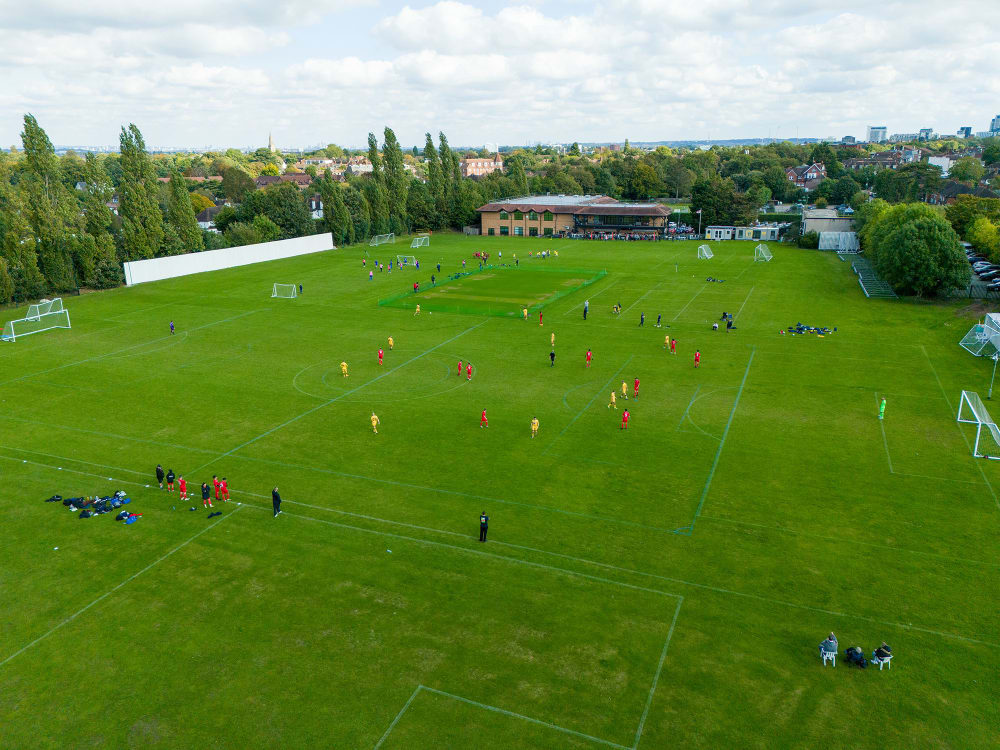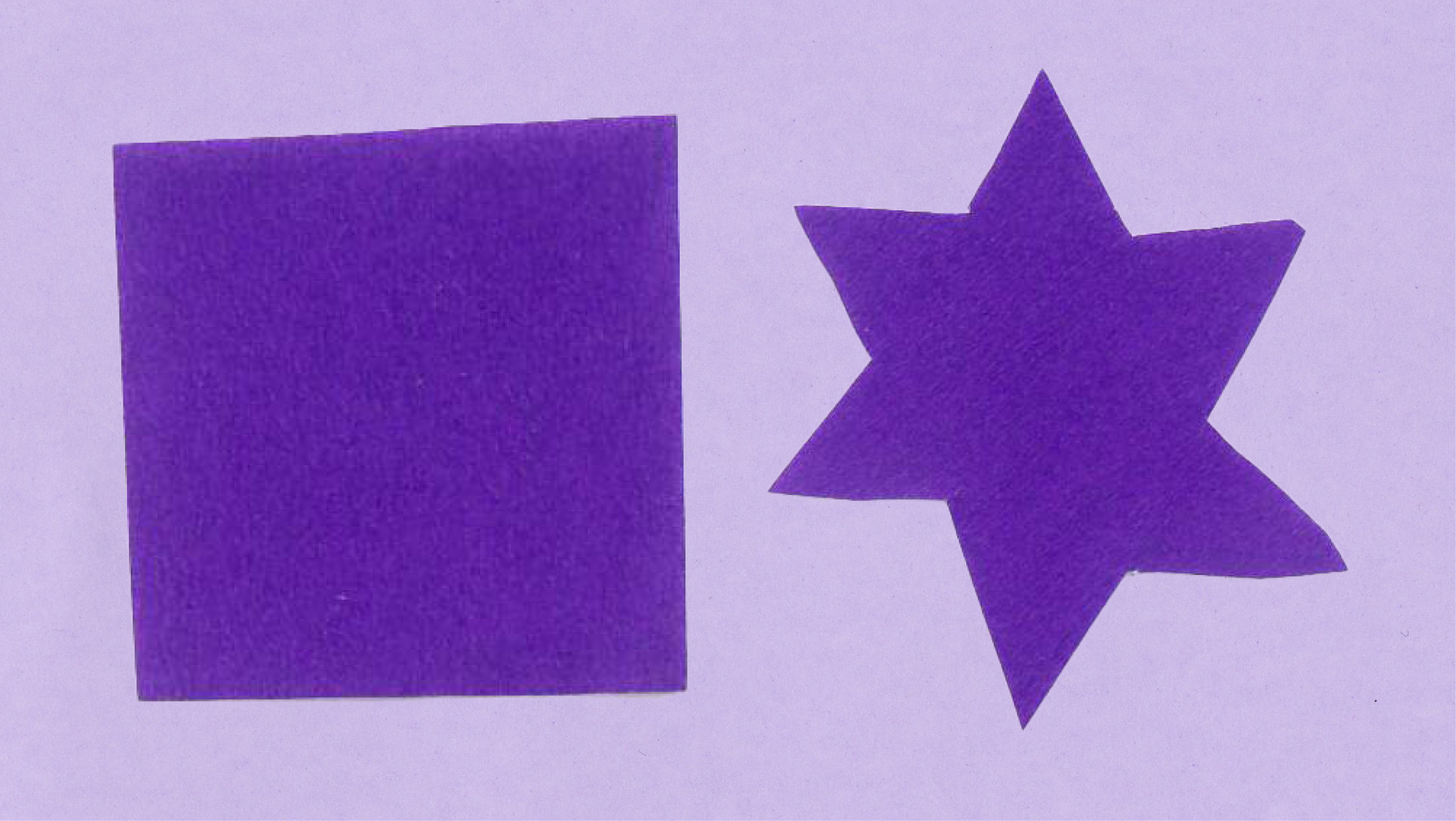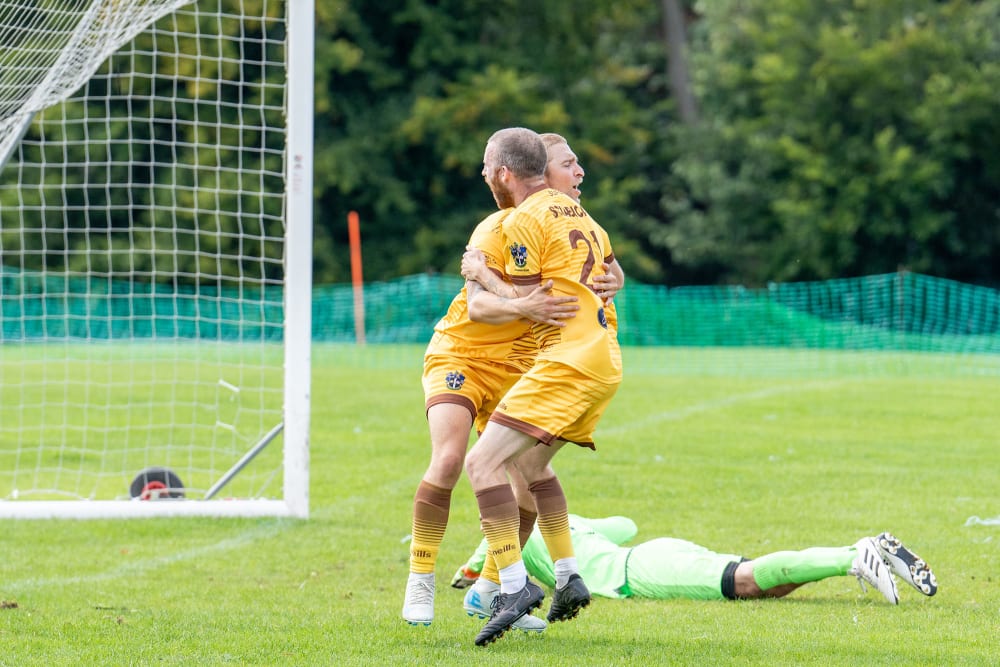
Disability History Month 2024: Richard Mead on raising awareness of disability football and learning to love the sport

- Written byStudent Communications
- Published date 19 December 2024

Richard Mead is a graduate from LCC’s MA Photojournalism and Documentary Photography course and we caught up with him as part of our Disability History Month celebrations to explore his final year project ‘Disability Football England’ and better understand his practice and motivations.
Hi Richard - can you introduce yourself?
I've just graduated from MA Photojournalism and Documentary Photography at LCC and before that, I studied BA Photography at South Bank University. I started as a mature student aged 28 but my interest in photography started when my dad bought me a camera when I was a toddler. It wasn’t until I was around 25 that I started taking photography more seriously. I left my job in the emergency services and started organising free photo walks around London with my friend. London can be a lonely place and I wanted to help people socialise and enjoy taking photos together.
After learning that degrees in photography actually existed, I decided to apply for clearing at South Bank. I didn’t have a portfolio nor know how to make one, so I just sent them my Instagram and I got in! I absolutely loved it and ended up following my tutor Daniel Alexander across to UAL, where he’s now the Director of Programming for Photography.
During my studies, I set up a nonprofit called Scarlett Arts Society, with the mission to help disabled and neurodivergent artists break into the industry.
How was your experience studying at UAL?
Coming to a dedicated art university was an amazing experience. I couldn’t believe the equipment and resources available to me and I made the most out of everything I could.
Studying at UAL was quite tough though. I'd taken 10 years out of education before returning to higher education, so it was a steep learning curve. At UAL, I got to the final major project in October and then had some health issues. I spoke to my course director Max and she was just amazing. I'd left it too late to defer, but she said, “no Richard, you’ve got health issues, speak to the University.” Ordinarily I would have had to come back with 3 weeks to go, but she advocated for me coming back in September and spending 3 months with the class. This allowed me to get to know the new group and get feedback on my project.
UAL is so much more supportive than any other place I've been to before and I thoroughly enjoyed the experience. Was it tough? Yes. Would I do it again? Absolutely.

What inspired you to create the project Disability Football England?
Disability Football England focuses on Sutton United, but I'm trying to eventually expand the project to photograph more teams. Essentially, it’s documentary coverage of the sport and the community.
A friend of mine sponsors Sutton United’s Disability Team and he mentioned that they needed a photographer. I don’t like football at all, but I went along and gave it a go and I’ve been photographing them every week since. I really like to help people and being able to spend so much time with the players and really get to know them has been great. It quickly became my biggest body of work and I realised that if this wasn’t a major project I don’t know what is! It very much evolved into my final major project unintentionally.
As part of the project, I conducted interviews with the players to learn more about the sport, their experience training and playing matches, and the community that had built up around the team. It was never about asking them about their disabilities or putting a label on them.
How did the how did the players react to the project?
The players and staff absolutely love the project. Before I started taking photos for them, it was just Steve the manager taking them on his phone. At first, they probably found when a guy with a massive camera pointing at them a bit off-putting but now I feel like part of the team. I go out with them, socialise with them – it's great.
I've got a Google Drive where I store all the photos and they have access to that. Any one of the players can download an image to put on social media, dating apps, wherever they want!

Are there any specific challenges with photographing like live sport?
One of the biggest challenges was avoiding getting hit in the face by a football! I’ve shot motorsport before, where the cars move incredibly fast, so when I got to the football game, I was whipping my camera around thinking, 'Oh, there they go!' and then quickly realising, 'Wait, no, they’re slower than cars.' It took a bit of getting used to.
I’m not a football fan, so I didn’t even know the basics like where to stand or what to expect. It felt like learning a whole new creative genre, even though I already know photography.
Another thing I hadn’t anticipated was how physically demanding it would be. I run up and down the sidelines for nearly two hours, moving between pitches, and even passing balls back to the players. With motorsport, I can stay in one position for a while or just jog to where the action is, but football requires constant movement.

Have you started to enjoy football more after becoming so embedded within the team?
I went absolutely feral when a player called Christine scored. She has cerebral palsy and it can be difficult for her to run but when she scored a goal in a league game. I was in tears. Sadly, I missed the shot of her scoring because the manager blocked my view! But I got her high fiving another player and it was just so wholesome. It’s so rewarding capturing moments like that. So, I may say I don't like football, but I love watching this team play.

What made you upload your work to Showcase?
My lecturers always encouraged us to make use of it and emphasised that it's only a few minutes work for an entire year of your work being platformed. If I see an opportunity to network, I always take it so for me, using Showcase was well worth it.
Do you have any future projects planned or a dream topic that you'd like to explore?
I've had an ongoing one project since before lockdown called ‘Dimensions of Dysmorphia’, which is about body dysmorphia in men. I've only taken self-portraits because it started during lockdown, and I moved on to different projects. I really want to develop this further though and photograph others to bring more awareness to the subject as I feel body dysmorphia in men is not widely spoken about.
What can you tell us about Scarlett Arts Society and what inspired you to found it?
It’s a nonprofit aimed at providing free art therapy, educational workshops and artist residencies for neurodivergent artists. My intention is to be able to offer a £5,000 paid residency to a neurodivergent artist. I’m applying for an art council grant to facilitate this.
In my BA, I had a couple of classmates who were autistic and seeing how the workshops and seminars helped them to gain confidence was so brilliant. If I can provide that support and help someone over the space of a six-month paid residency, that would be amazing. I want this to be my full-time thing because I want to help people as much as possible.
The name ‘Scarlett Arts Society’ means a lot to me. My granddad was called Peter Scarlett and he was a brilliant magician. He was the president of the International Brotherhood of Magicians. I remember how much he cared about sharing magic with people who would have had limited access to it. He passed away in 2017 and so I really wanted to commemorate him this way.
The proposed residency is called the ‘Radcliffe Residency’. My great uncle Patrick Radcliffe was an artist. He never sold any of his work but he was an amazing painter. When he passed away, we found some amazing paintings in his house, but no one had any idea he could paint. I think it’s a shame no one knew and so I want people to know about him.
Where can readers see more of your work?
If people want to see more of my work, they can check out my Instagram or visit my website.